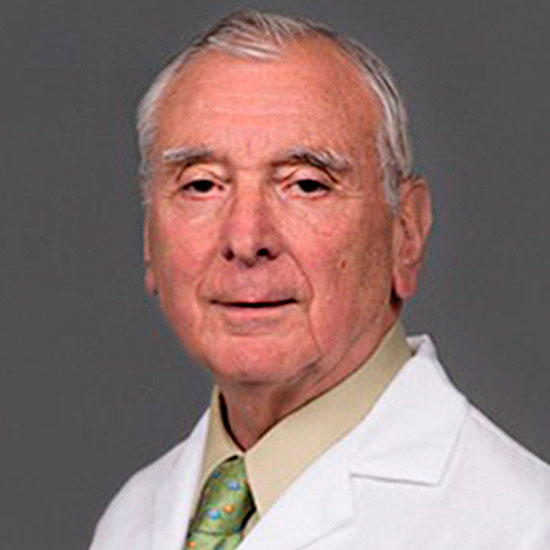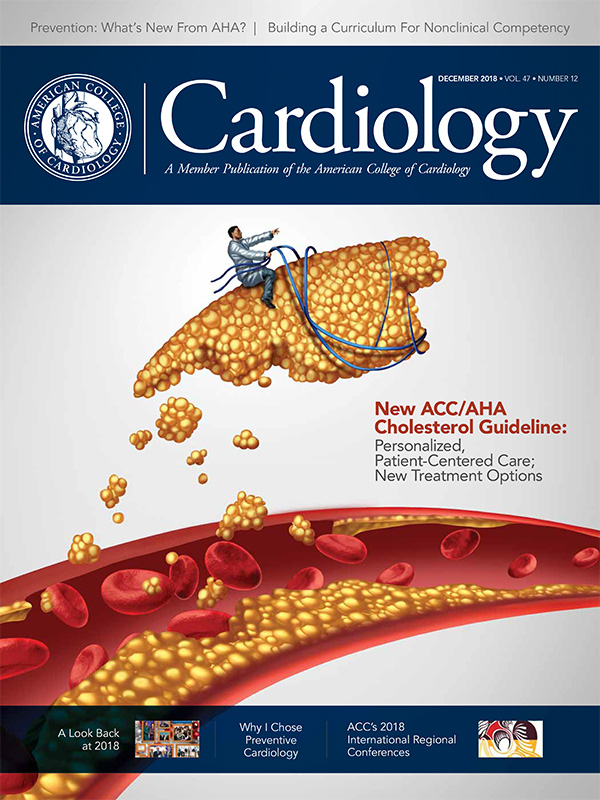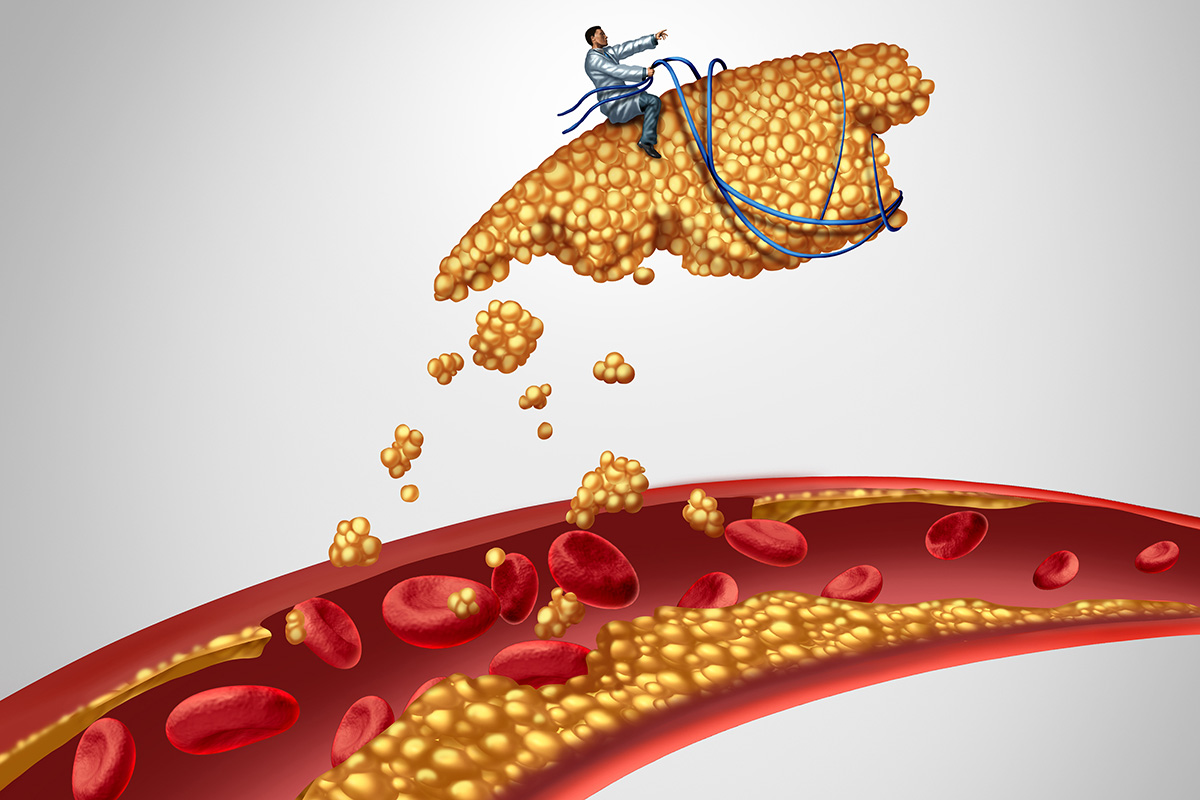Editor's Corner | Reflecting on New Evidence From AHA 2018
Like most mid-term elections, this year's political season captivated most of the national attention. And for a few weeks, we nearly lost sight of the excitement of the AHA Scientific Sessions that quickly followed on the heels of the national elections. The sigh of relief that came with the end of the season's political ads gave us space to consume the clinical trials and registries that filled our time at AHA 2018.
Economic factors continue to dominate decision-making when considering use of a PCSK9 inhibitor. Along with an announcement for a lower price for alirocumab, the data continued to show reduced all-cause mortality in patients post acute coronary syndrome (ACS) with LDL-C >100 mg/dL and in patients with diabetes. Because of their proven efficacy and minimal cost, statin therapy is likely to remain the treatment of choice for lowering blood cholesterol.
The VITAL study found that neither major cardiovascular disease events nor invasive cancer were significantly reduced by Omega-3 or vitamin D. Omega-3 significantly reduced the rate of total myocardial infarctions (MI), especially in African Americans and in those with lower baseline fish intake. The authors noted that studies of higher doses might demonstrate significant findings but may not apply to primary prevention.
A study from Japan looked at patients over 75 years old with elevated cardiovascular disease risk, due to elevated LDL-C, but no history of coronary disease. Ezetimibe monotherapy and dietary counselling showed a significant reduction in cerebral and cardiovascular event compared with counselling alone. With our increasing population of well elderly patients, therapy for hyperlipidemia as well as for hypertension and cancer screening will be an important part of our cardiology practice.
For those of us who see patients with cardiomyopathies, we're occasionally happy to find a patient who recovered from a cardiomyopathy with a normal ejection fraction and normal cardiac dimensions. Data presented from the TRED-HF study suggests that up to 40 percent of these patients show deterioration of cardiac function later in life.
In patients who continued therapy with heart failure (HF) medications, none showed a loss of cardiac function, compared with the 40 percent who developed late HF. Patients with postpartum cardiomyopathy along with patients treated with anticancer medications and patients with other forms of toxic myopathies should be considered for long-term HF treatment, even in the presence of normal cardiac function.
We continue to look for the effects of inflammation on cardiovascular function. The CIRT trial examined the effect of low-dose methotrexate on patients post MI or patients with diabetes or metabolic syndrome. Inflammatory markers and cardiovascular events with treatment were not different from placebo.
We continue to find applications for therapy with a direct oral anticoagulant (DOAC) in reducing thromboembolism risk without increasing bleeding risk. In the COMMANDER HF trial, risk for thromboembolic events was reduced with low-dose rivaroxaban in HF patients in sinus rhythm. These patients may develop a thrombotic event from an occult episode of atrial fibrillation or may have a thrombotic event while in sinus rhythm. In either case, anticoagulation with a low-dose DOAC will lower the risk of a thromboembolic event in these patients.
What is the best treatment strategy for patients post kidney transplant who still have dialysis shunt and are otherwise in good health? In some patients, the shunt will thrombose, but many patients retain a significant shunt. A study from Adelaide, Australia, showed a significant reduction in left ventricular (LV) mass in patients whose shunts was closed. This further restores the patient to a normal hemodynamic state and avoids risk for developing HF (either HFrEF or HFpEF) later in life.
The EMPA-HEART study showed that LV mass is also reduced with empagliflozin in patients with type 2 diabetes and coronary artery disease. These patients are likely to have less LV hypertrophy and less long-term risk of HF.
While we have come to accept the value of attempting to open a totally occluded coronary artery, we saw a period where opening a CTO was contraindicated. Improved technology, improved stents and improved training has improved outcome for treatment of CTO. In some patients, treating a CTO may be the only option. Poletti, et al., reported results in 309 patients with CTO and in 2,271 patients without a CTO.
Nearly half of patients in the non-CTO group were treated for an ACS. Contrast volume was higher in the CTO group. Factors that predicted contrast-induced nephropathy included hypotension, ACS, age, female gender, reduced ejection fraction, diabetes and contrast volume; presence of CTO was not a predictor. This study emphasizes the role of chronic kidney disease in management of patients with coronary disease and chronic renal disease. In our aging population, chronic renal insufficiency may be an unwanted complication in our patients with coronary disease.
An interesting study presented by Robinson, et al., examined the efficacy of using therapeutic radiation to ablate refractory ventricular tachycardia. Using modern radiation techniques that allow precise pinpoint localization of the scar in the ventricle, proper radiation dosing and computer-based positioning (now well established for treatment of solid tumors) it's now possible to produce results similar with electrophysiological (EP) ablation without the need for complex invasive EP procedures. This technology may find a place in our new field of cardio-oncology.
AHA 2018 provided us an impressive collection of new ideas and old ideas that enhance our knowledge and improve our capacity to improve our patients' quality of life and their longevity.

Alfred A. Bove, MD, PhD, MACC, is professor emeritus of medicine at Temple University School of Medicine in Philadelphia, and a former president of the ACC.
Clinical Topics: Acute Coronary Syndromes, Anticoagulation Management, Arrhythmias and Clinical EP, Cardiovascular Care Team, Diabetes and Cardiometabolic Disease, Dyslipidemia, Heart Failure and Cardiomyopathies, Invasive Cardiovascular Angiography and Intervention, Prevention, Atherosclerotic Disease (CAD/PAD), Anticoagulation Management and ACS, Anticoagulation Management and Atrial Fibrillation, SCD/Ventricular Arrhythmias, Atrial Fibrillation/Supraventricular Arrhythmias, Lipid Metabolism, Nonstatins, Novel Agents, Acute Heart Failure, Interventions and ACS, Interventions and Coronary Artery Disease, Hypertension
Keywords: ACC Publications, Cardiology Magazine, Coronary Artery Disease, Methotrexate, Diabetes Mellitus, Type 2, Atrial Fibrillation, Acute Coronary Syndrome, Kidney Transplantation, Vitamin D, Longevity, Cicatrix, Seasons, Early Detection of Cancer, Metabolic Syndrome, Quality of Life, Stroke Volume, Renal Dialysis, Benzhydryl Compounds, Glucosides, Antibodies, Monoclonal, Myocardial Infarction, Cardiomyopathies, Thrombosis, Renal Insufficiency, Chronic, Thromboembolism, Hypertension, Registries, Heart Failure, Tachycardia, Ventricular, Hyperlipidemias, Hypotension, Stents, Primary Prevention, Counseling, Anticoagulants, Decision Making, Inflammation, Cholesterol, Hypertrophy, Muscular Diseases, Postpartum Period
< Back to Listings







